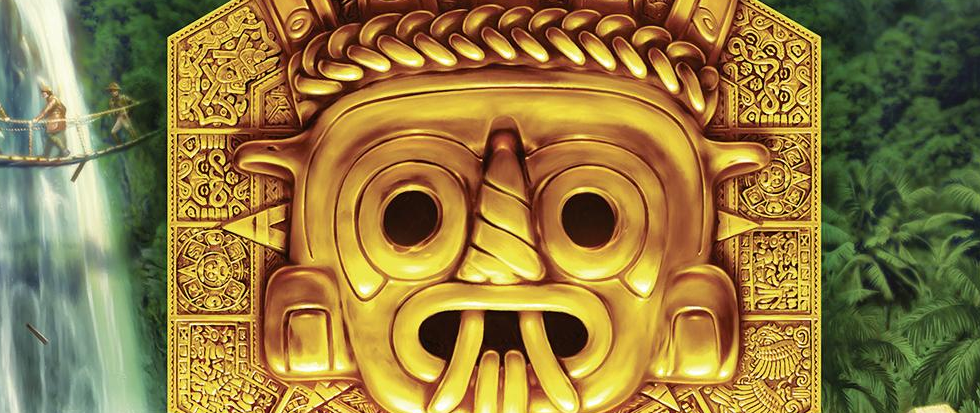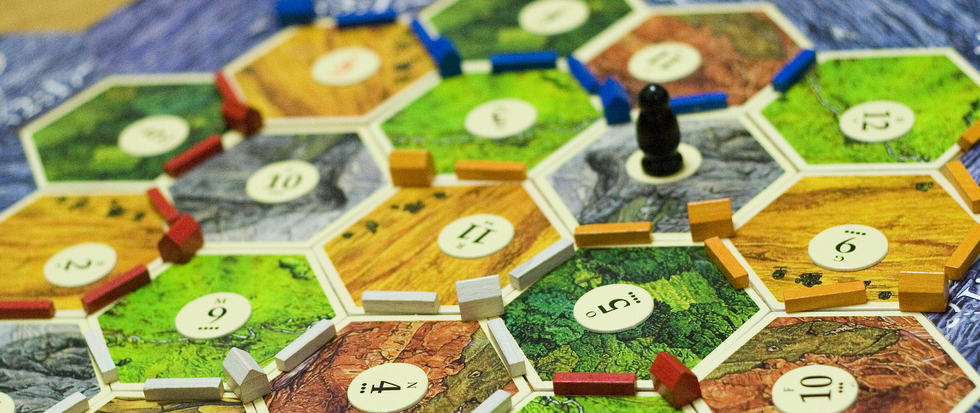
Simplicity Rules in El Dorado
This year, Kingdomino took home the coveted Spiel des Jahres, Germany’s game of the year award. The award typically spotlights games that are family friendly and easy to learn, while at the same time presenting something new and innovative to the board game space. Kingdomino certainly fits all of this criteria, but after playing Reiner Knizia’s The Quest for El Dorado a handful of times, I can’t help but think that perhaps the judges got it wrong this year.
The central conceit of El Dorado is that players are explorers on an expedition to find the fabled city of gold. The path to El Dorado is treacherous and fraught with natural obstacles that require savvy planning to overcome: thick jungles call for heavy machete use and water is impassable unless you have a boat. The trip will be expensive, too, so don’t forget your precious spending gold.
Mechanically, El Dorado is a mashup of two distinct genres; part racing game, part deckbuilder. Players want to be the first to arrive at El Dorado, and must traverse the land through the use of a growing deck of cards. Each card corresponds to a specific type of landscape, and playing a card of that type allows you to move into that space. In that way, finding the optimal route means using your cards wisely, and plotting the path ahead becomes an exercise in foresight.
Because you can see what is coming, your ability to proceed quickly is dependent on purchasing the new cards that will best aid you in any particular game. The game includes a whole mess of tiles that can be mixed and matched for a different experience each time you play, and so adapting to the current gauntlet of jungle, river, and mountain is a large part of the game. The market of new cards available to add to your growing deck serves as a sort of toolbox that benefits from careful planning. Now, being a family game, El Dorado does include a few catch-up mechanics, but if you’re not careful, you could find yourself a good ways behind.
What makes El Dorado so good is its simplicity. A mashup of two different genres has the potential to become clunky and confusing, but that is not the case here. Each aspect of the game–deckbuilding and racing–is polished to a mirror sheen, and lacks any superfluous mechanics. There are no extraneous bells and whistles here, just a no-frills, streamlined racing game.
To it’s credit, Spiel winner Kingdomino ticks off all the requisite boxes for a good family-friendly game. I very much enjoy it, but it’s impossible to deny the repetitive nature. This is a problem that El Dorado fixes thanks to the variable setup. The variety is impressive, and made more so by just how simple it is to unpack and get playing. The fact that El Dorado avoids the pitfall of over complicating setup when there are so many possible variations is impressive. For this reason, it is my game of the year.





